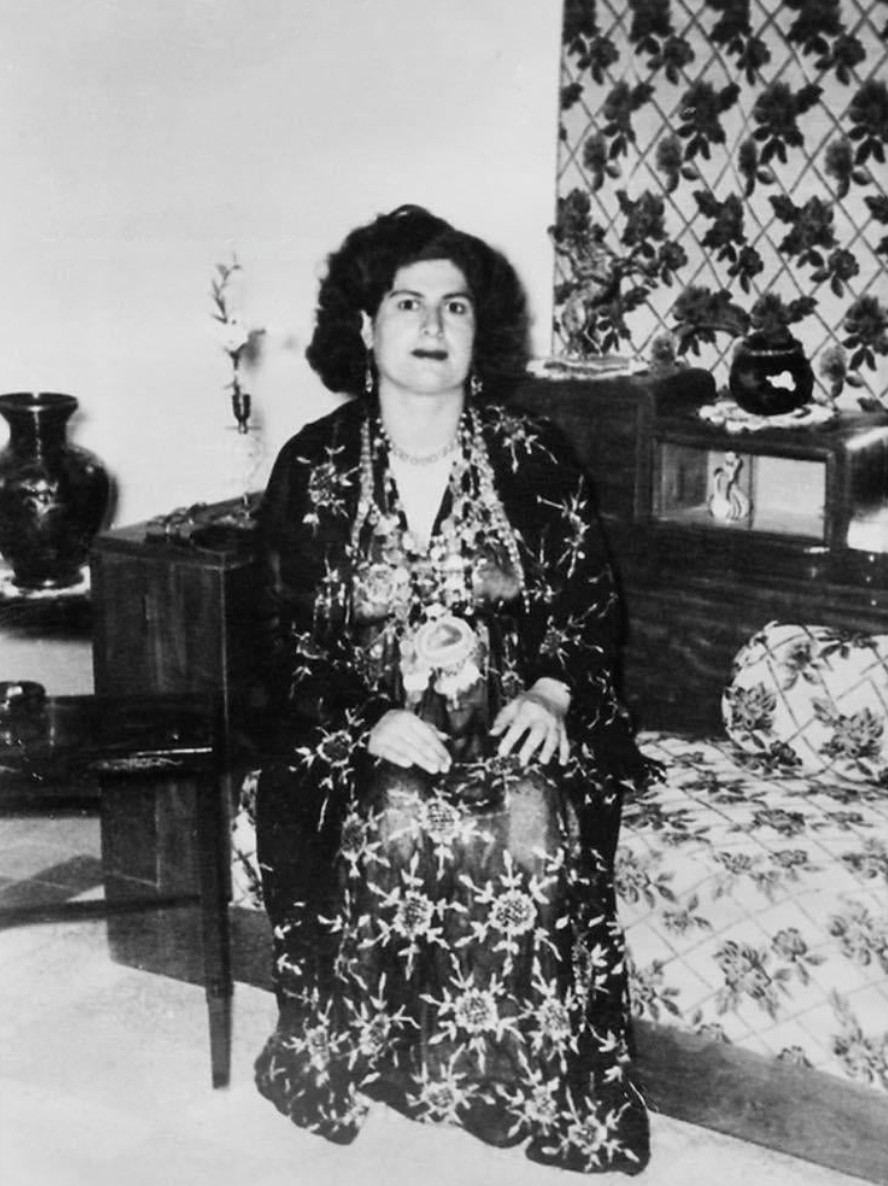Throughout the 20th century, Kurdish Christians in the Kurdistan Region of Iraq – including Assyrians, Chaldeans, Syriacs, and Armenians – were part of the Kurdistan liberation movement, with a large number of Christian fighting in the ranks of the Kurdish peshmerga.
This story is about a young Christian fighter from the Kurdistan Region who spent 10 years and eight days in the dark and terrible prisons of Saddam Hussein's regime because of his participation in the Kurdish people's liberation movement.
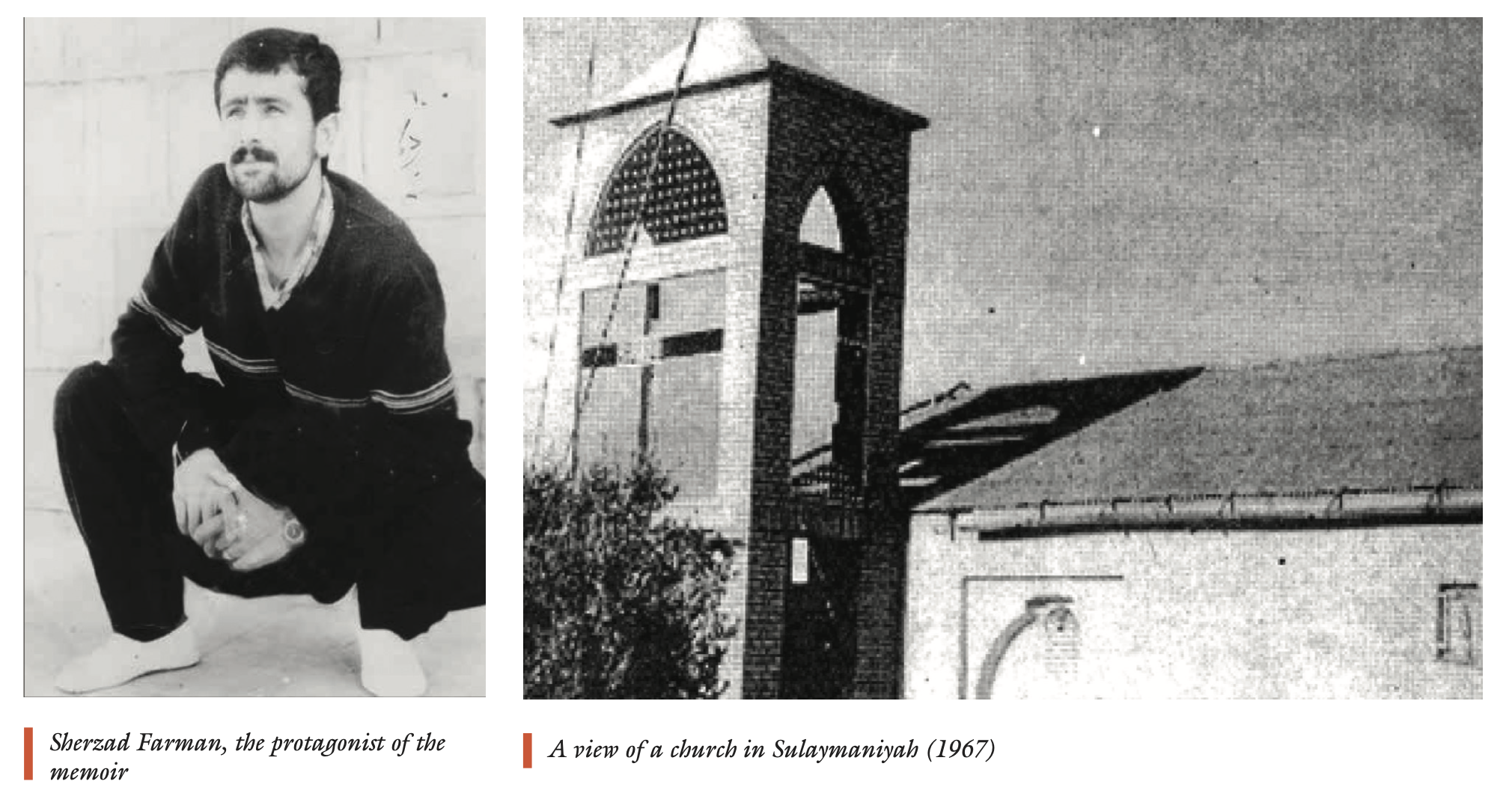
Revolutionary spark
In the mid-1980s, when Saddam Hussein's Ba'athist regime ruled the whole of Iraq, including the Kurdistan Region, the Kurdish people were tortured, oppressed, imprisoned, and executed by the security agencies of Hussein's regime. They were executed and forcibly enlisted to fight in the Iran-Iraq War. Only a year had passed since the genocidal Anfal campaign against the Kurdish people in the Barzan area, during which more than 8,000 people were massacred. Masoud Barzani also led the Gulan Revolution against the Iraqi Ba'ath regime to liberate Kurdistan.
Starting in 1983, a 15-year-old Kurdish youth from a patriotic Assyrian Christian family living in the Sarchnar neighborhood of Sulaymaniyah, one of the most important cities in Iraqi Kurdistan, became passionate about revolutionary work and decided to join the Kurdistan revolution.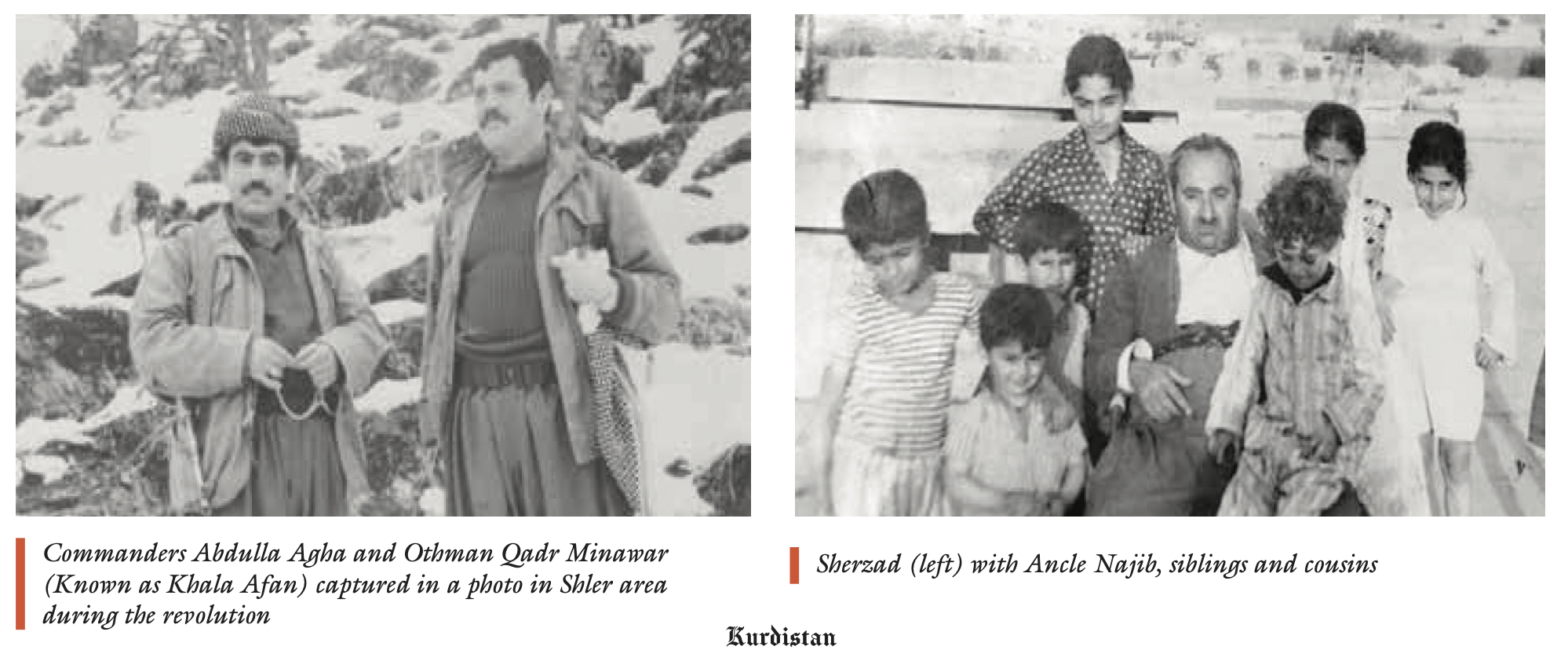
Born in 1969, the young man named Sherzad Farman Yaqo came to be known as Sherzad Masihi (“Sherzad the Christian”) in his neighborhood. With the encouragement of two of his friends, Nizar Nuri and Salar Mohammed Abdulkarim, Sherzad joined the Kurdistan Democratic Party (KDP) led by Masoud Barzani. From then on, he began his political and revolutionary career.
“I remember when I was six or seven years old, the Iraqi government decided to conduct a national census. An Arab population official came to our house to fill out a census form asking what nation we were.”
“We are Assyrians,” my father responded.
The Arab employee said: “We cannot write Assyrian. You are Arabs, so I will write Arabs.”
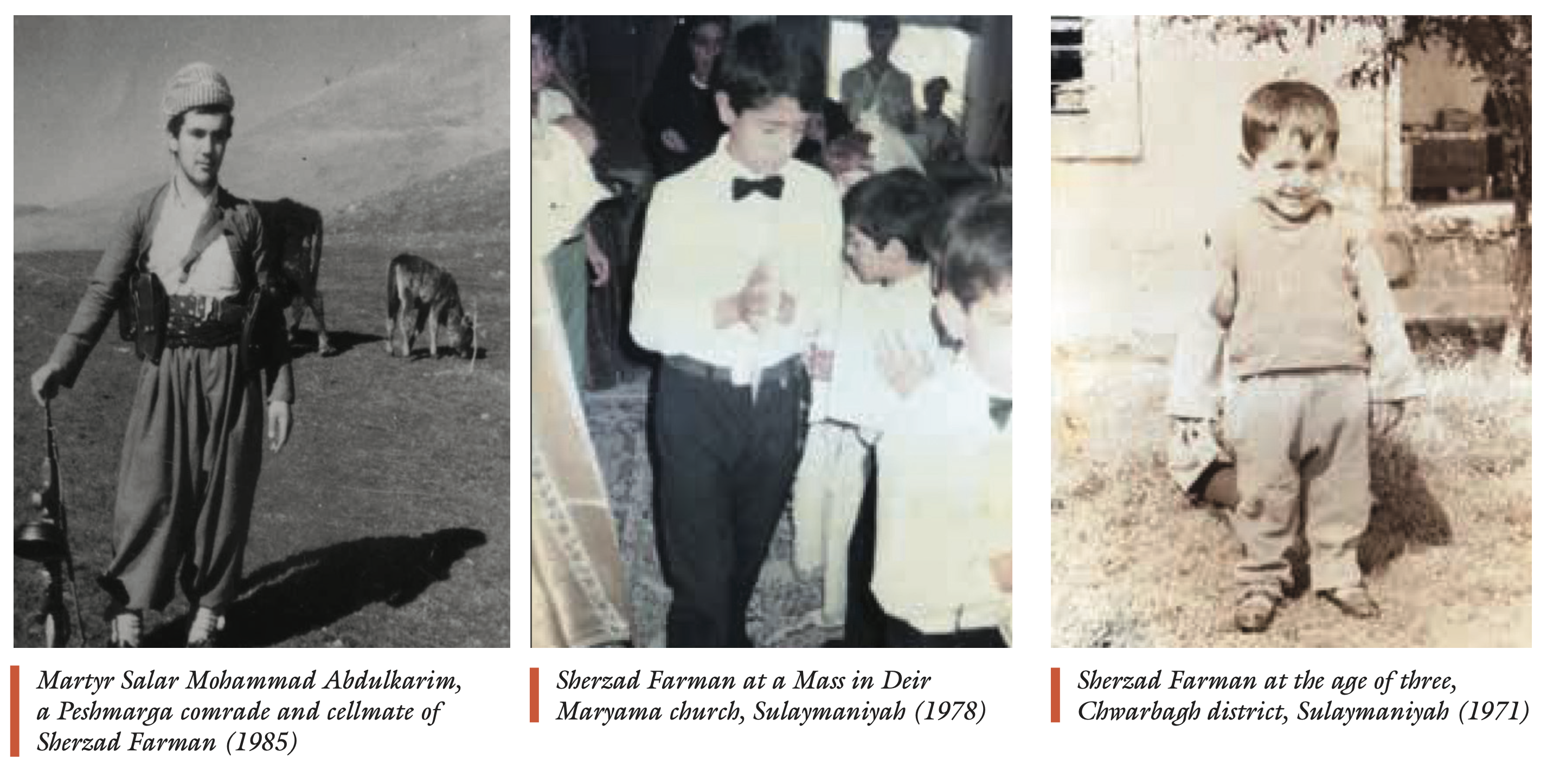
My father said angrily: “My brother, we are not Arabs, we are Assyrians. If you want to change our nationality, then please change it to Kurdish. Why are you making us Arabs?”
The employee said: ‘Don't say that, it is bad for you and me. Every Christian in Iraq is written as an Arab. This is the order of the state, and no one can disobey it!’
“That conversation between my father and the census officer – and all the oppression that was committed against the people of the Kurdistan Region by the Iraqi Ba'ath regime at that time – made me want to join the ranks of the peshmerga and the Kurdish revolutionaries,” Sherzad said.
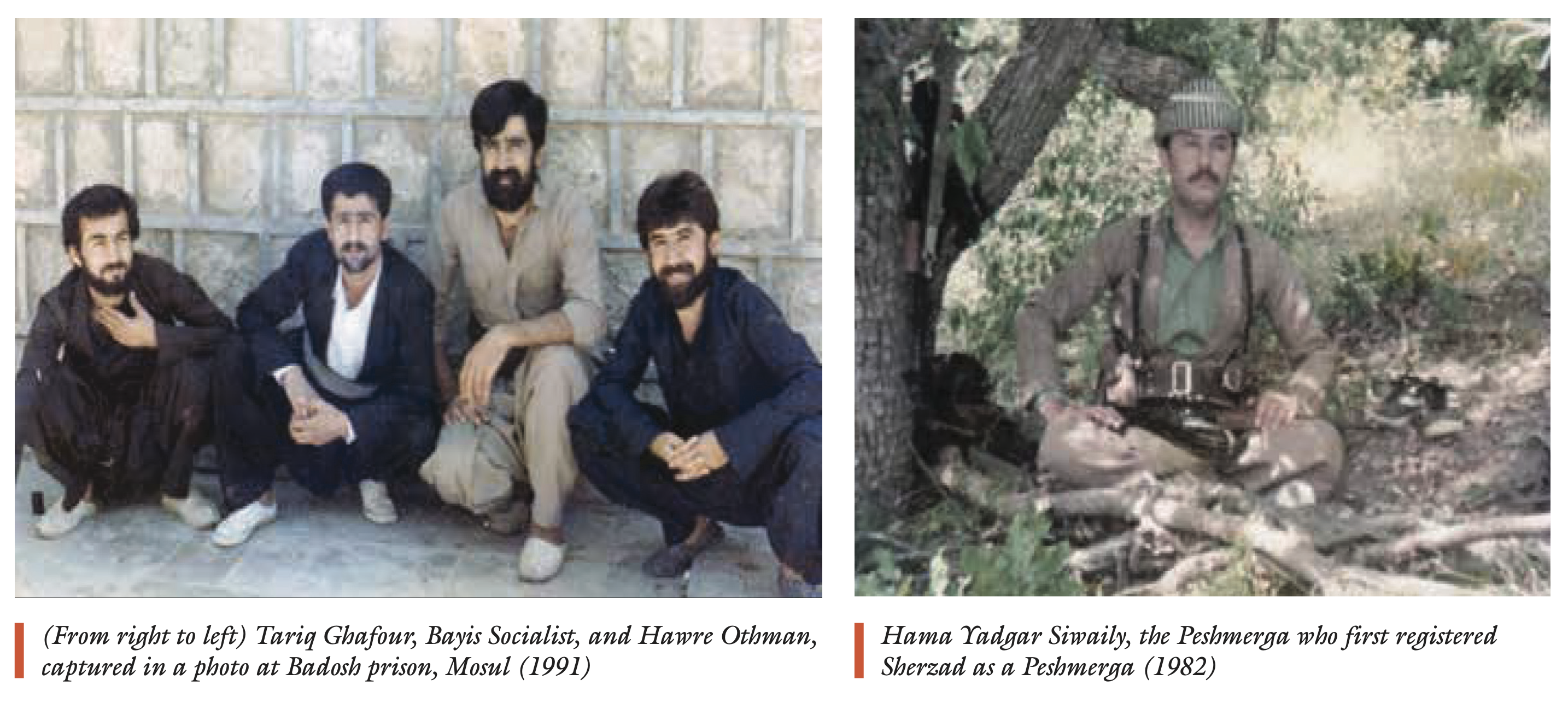
Becoming peshmerga
The secret political activities of Sherzad and his friends in Sulaymaniyah in 1984-1985 included: organizing demonstrations in the city against the Ba'ath regime, threatening spies and officials of the regime, monitoring and guiding the peshmerga units coming into the city from the mountains to attack the headquarters of the Ba'ath security agencies, writing political slogans on the walls of public places, and hanging statements and publications of the Kurdish revolutionary leadership in the city at night.
The Kurdistan Revolution had only one radio station called the Voice of Kurdistan Radio to use as a media and communication tool. The Iraqi Ba'ath regime used radar devices to interfere with the radio broadcast so that no one in the Kurdistan Region could hear news of revolutionary activities. Sherzad Masihi and his friends would record the broadcasts on tapes that they threw into the houses of Ba'ath regime officials to intimidate them.
In 1985, after Sherzad and some of his friends participated in a large demonstration in Sulaymaniyah against the Ba'ath regime, they were targeted by the Ba'ath security agency. They fled to the mountains and joined the peshmerga in Sulaymaniyah and became peshmerga. Sherzad was only 16 years old at the time, so the peshmerga officials told him: “You should go back to the city and continue your studies because you are still a child. And when you turn 18, you may come back to us if you would like.”
“If you don't accept me as peshmerga, I will have to go somewhere else,” Sherzad insisted.
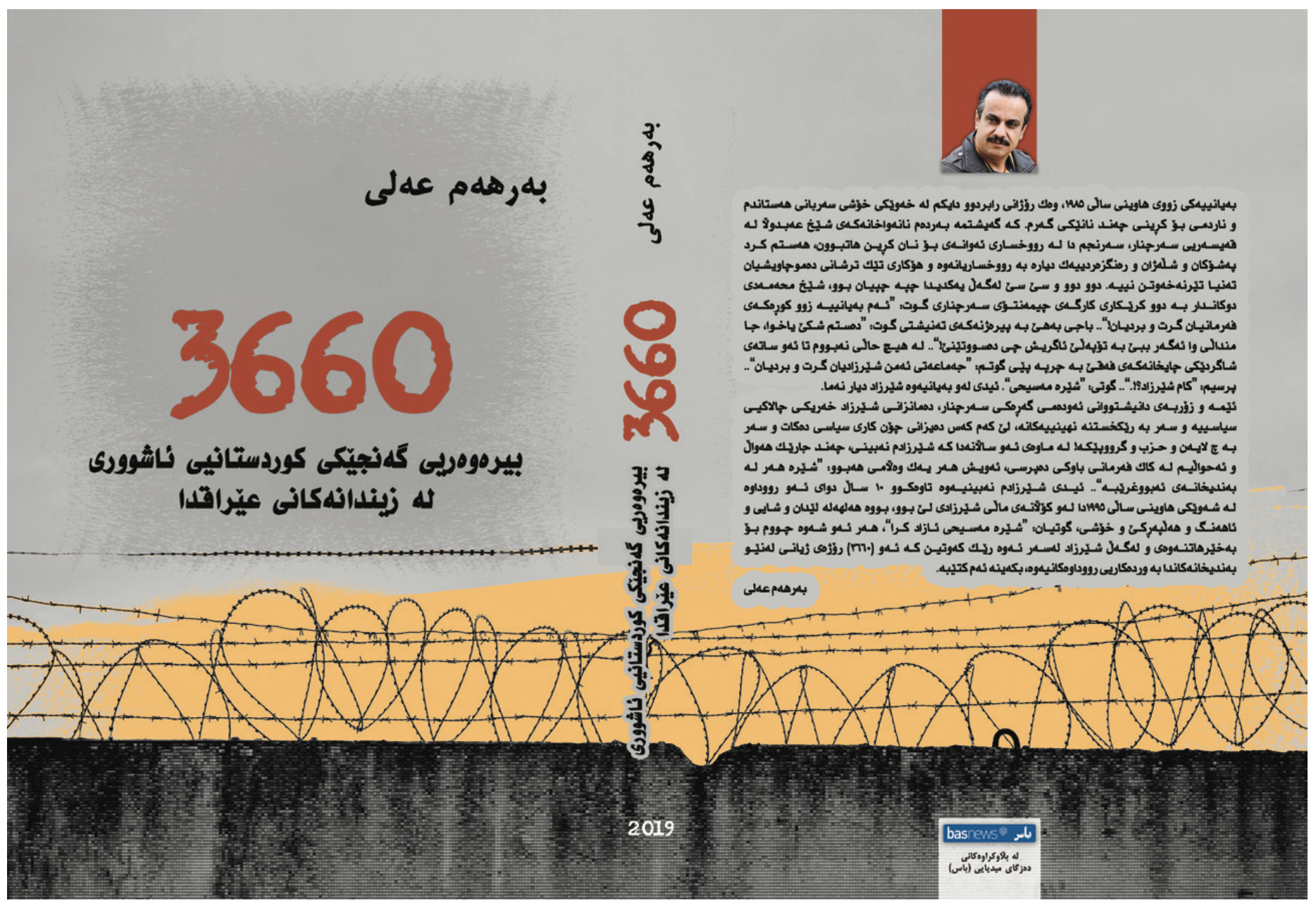
In regime prisons
Shortly after Sherzad began his peshmerga service, his parents sent him a letter through a neighbor asking him to return to the city; if he did not, they would come to the mountains as well. Sherzad was forced to return to the city and resume political activities until he and a number of his comrades were exposed by some spies. On a summer morning in 1985, a car full of Ba'athist security forces raided Sherzad's father's house and arrested the 16-year-old Sherzad.
This young Christian revolutionary discovered a life of pain and torture that awaited him in Ba'ath prisons. He spent several months in the prisons of both the Sulaymaniyah Security Department and the Chuarbakh Security Department in Sulaymaniyah. Sherzad endured beatings and torture every day. There, the prison guards brought video cameras and forced the prisoners to confess to various crimes.
After months of torture, Sherzad and his comrades were transferred to Fazailiyah Prison near Baghdad, where they were placed in one hall with 101 other young people from Sulaymaniyah. The rest of the large halls housed thousands of Faili Kurdish men, women, and children. At the time, the Ba'ath regime was expelling the Failis from Baghdad and deporting them to Iran. At great risk to himself, Sherzad delivered a letter from a Faili Kurdish father from the roof of the men's prison to the man’s daughter in another section of the prison. He received the daughter's answer in the same way and took it to her father.
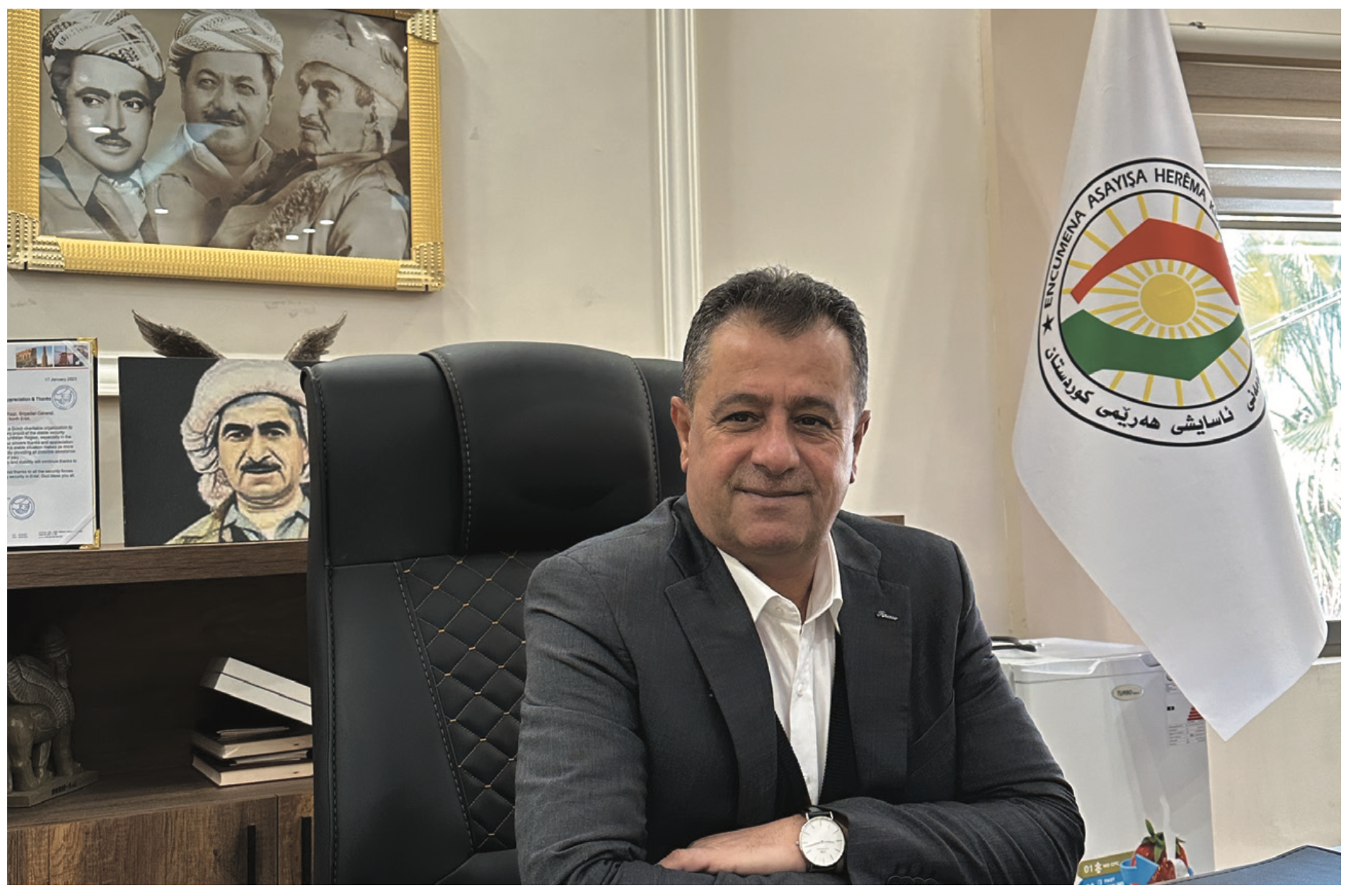
Sherzad Farman
Later Sherzad was taken from Fazailiyah to the Revolutionary Court, where he witnessed many Kurds being sentenced to death or life imprisonment. When Sherzad was put on trial, he took off his shirt in front of the judge, showed him the bruises he received from torture, and shouted: “I have done nothing. What is written and signed under my name was extracted under pressure and torture. Everyone was under pressure from beatings and torture.”
Two guards in the court rushed to him and beat him. Then the judge read out the verdict: “Because the accused Sherzad Farman Yaqo belongs to Masoud Barzani's group and participated in destructive events in northern Iraq, the court sentences him to 15 years in prison.”
As a young Christian who was in the ranks of the peshmerga and participated in the Kurdistan Revolution, Sherzad was tortured regularly in different prisons. In most prisons, the guards openly asked him: “As a Christian, why did you join the Kurdish Revolution, the peshmerga, and the Barzani group? How can a Christian participate in the Kurdish movement?” Because of his devotion to freedom, Sherzad never gave up his ideals, even though he was imprisoned for more than 10 years.
During Sherzad's decade in prison, dictator Saddam Hussein sometimes granted amnesty to prisoners on special conditions. Sherzad, however, was a Christian and had participated in the Kurdish revolution. When amnesty was issued for Kurdish political prisoners, he was told the following: “This amnesty does not apply to you because you are an Arab, according to your ID card!” When amnesty was issued for Arab political prisoners, he was told: “This amnesty does not apply to you because you have been arrested and sentenced for participating in the Kurdish cause.” Out of his 15-year sentence, Sherzad spent about nine years in Abu Ghraib in Baghdad and one year in Badoush for a total of 10 years and eight days.
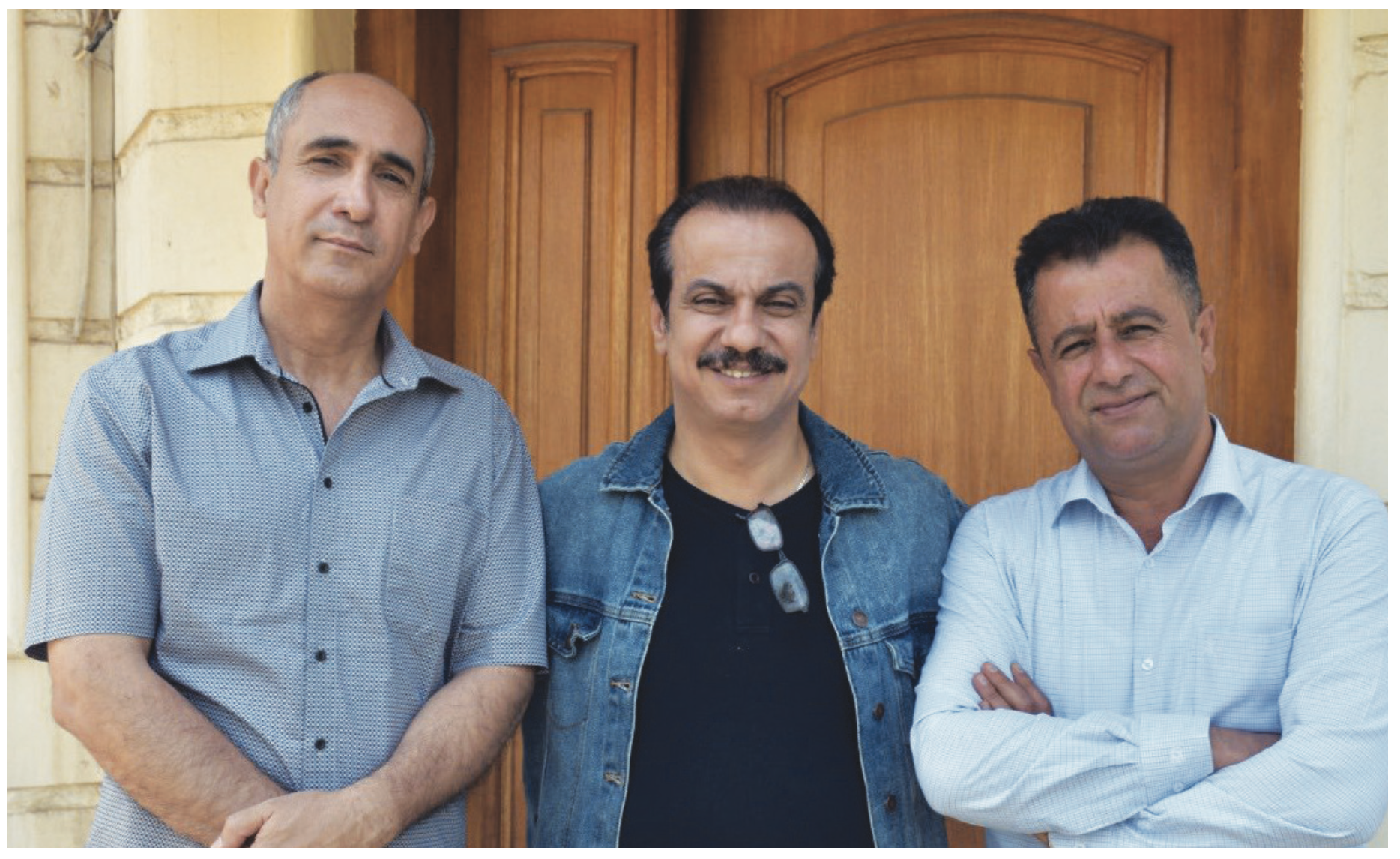
Memories of a revolutionary
I have known Sherzad Masihi since childhood because we were born in the same neighborhood in Sulaymaniyah. When he was released in 1996, I went to welcome him, and we agreed to write a book about his life and experiences in prison. I have since published the book in both Kurdish and Arabic, and it contains very important documents, the most important of which are about 40 photographs of Sherzad and his friends in prison.
Every night and day of his time in prison contained so many events, tragedies, and deaths that each could be made into a movie. According to Sherzad, the prisons of Saddam's regime held tens of thousands of people of all ages, including Kurds, Arabs, Assyrians, Turkmens, Chaldeans, Shiite and Sunni Muslims, Christians, Yezidis, Kakais, Sabi'is, Mandais, Baha'is, intellectuals, senior officers, and clergymen.
After Sherzad was released from prison, he returned to Kurdistan to rejoin the Kurdistan Democratic Party (KDP). Since 2001, he has served as a security officer in the Kurdistan Region. He is currently in charge of a security base in Erbil, the capital of the Kurdistan Region. He is married and is the father of three sons and a daughter.
Barham Ali is a seasoned journalist within the Kurdistan Region and holds the esteemed position of editor-in-chief at Bas News.
